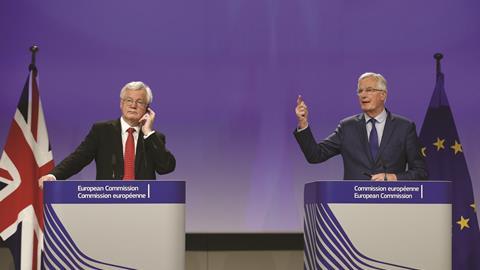The question that will apply soon to the UK as a whole can be asked of the Law Society itself: after Brexit, where will we belong?
At present, the Society, along with the other UK bars and law societies, is an active member of the Council of Bars and Law Societies of Europe (CCBE), which has full or observer members from 45 member countries’ bars. If you look at its website, you will find a range of policy issues either already formulated or in the process of being so: for instance, on anti-money laundering; the challenges of privacy, surveillance and confidentiality; or the coming revolution in the delivery of legal services through IT innovation. These issues are all close to the Law Society’s own circumstances.
The post-Brexit status of the Society in the CCBE will doubtless depend on the outcome of the deal struck with the rest of the EU. For instance, the countries of the European Economic Area (Norway, Iceland and Liechtenstein) are full voting members of the CCBE, as is Switzerland. We might end up in the same general category, even if our final deal is somewhat different to theirs. In that case, we could still participate in the debates and votes, but the actual legislation, parliamentary resolutions and court cases being discussed would not apply to us.
Some people long for Brexit, so that they can strengthen economic ties with former colonies and dominions. There is a pre-existing association waiting for them with open arms – the Commonwealth Lawyers Association (CLA), headquartered in London. The Commonwealth has 52 member countries, of which 31 are classified as small states. The CLA is aimed principally at individual lawyers. It holds an annual conference and occasional other conferences, and works with the Commonwealth secretariat in relevant working groups.
Britain is not alone in having an association of bars or lawyers from former colonies. The French have the Conférence Internationale des Barreaux, which has 45 member countries. Among its activities are an annual meeting and two to three training sessions a year for clusters of bars. It also sends around a dozen young African lawyers a year to Paris for internships, assists bars which have current difficulties and has a twinning programme.
The Spanish also have one – the Union Iberoamericana de colegios y agrupaciones de abogados – which includes 22 member countries, nearly all from central and south America, with similar activities.
These post-imperial organisations are understandably most focused on critical issues around the rule of law faced by a number of their members. The Law Society has a role to play, but it will not find a forum for the discussion and resolution of the principal issues that it now faces as a large and relatively rich organisation in a post-industrial society, being shaped by powerful trends such as the latest technological advances, demands for greater deregulation in the public interest, and (for its largest member firms) fierce competition in cross-border legal services.
There are, of course, international legal organisations, principally the International Bar Association (IBA) (which is anglophone), and the Union Internationale des Avocats (UIA), which offers more languages and attracts a more Latin membership.
I know the IBA well. It has a combined membership of individuals and bars (the bars come from over 160 countries). The bar members, not contributing as much money as the individuals, have battled to have their voice heard, but the section representing them is growing in power and influence.
The IBA’s bar section – the Bar Issues Commission – deals with the kind of challenges that the Law Society faces, but its responses are necessarily rather general. With such a varied membership – from rich and poor, north and south, large and small – its conclusions tend to satisfy the lowest common denominator. That means that the Law Society, from the larger, richer end, may not find proper solutions and support that it seeks in complex campaigns.
The UIA is not as well-resourced or organised as the IBA, and its usefulness to the Law Society is therefore similar.
None of this matters much. Lawyers are not the whole of British society, nor representative of all its needs. But it is a mirror of the larger problem. For instance, those ministers now talking up ‘no deal’ and the wonders of the World Trade Organization, their new favourite home, cannot have much experience of it. It has 164 members and – like the IBA for its member bars – is necessarily a blunt, lowest-common-denominator instrument for a country with sophisticated needs.
The Brexit debate began, and will end, with still unsettled questions of our identity. It will doubtless take a long time before we find a comfortable new place in the world, suitable to our needs.
See also Law Society Brexit taskforce update.
Jonathan Goldsmith is Law Society Council member for EU matters and a former secretary general of the Council of Bars and Law Societies of Europe. All views expressed are personal and do not necessarily reflect the views of the Law Society Council






























No comments yet